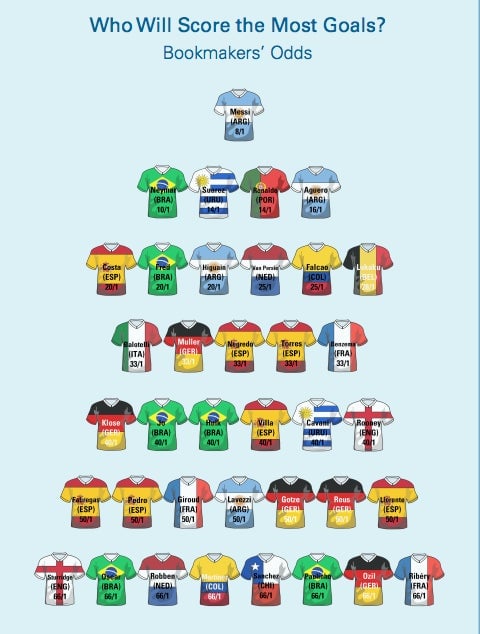Here are eight totally bogus correlations between the World Cup and economics
“Is there any link between football and economic success?,” asks Goldman Sachs in a fairly comprehensive note released this morning on the World Cup, which begins in just over two weeks in Brazil. ”Almost certainly not. However, we didn’t let this mere fact stop us from trawling the data for some spurious correlations between the two.”
ByJohn McDuling and John McDuling


“Is there any link between football and economic success?,” asks Goldman Sachs in a fairly comprehensive note released this morning on the World Cup, which begins in just over two weeks in Brazil. ”Almost certainly not. However, we didn’t let this mere fact stop us from trawling the data for some spurious correlations between the two.”
We all know that correlation doesn’t equal causation but here are some of the more interesting (and in many cases tenuous) examples unearthed by Goldman Sachs’s analysis.
Tournament wins and economic growth
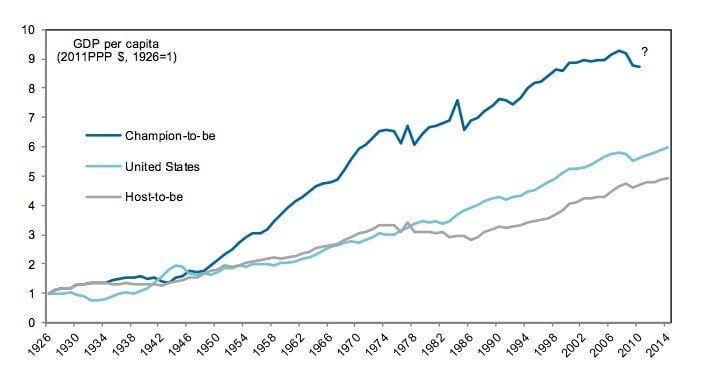
Red cards and domestic violence
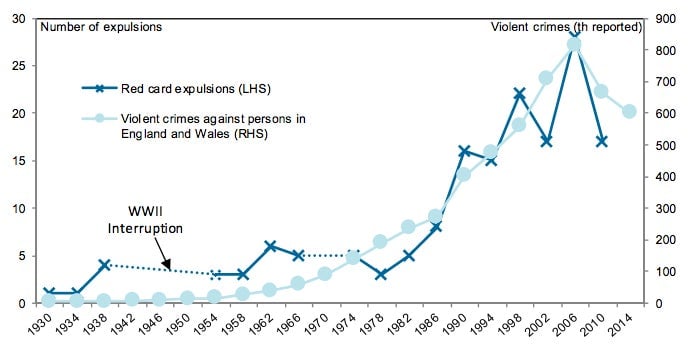
Goal “disinflation” and falling global consumer prices
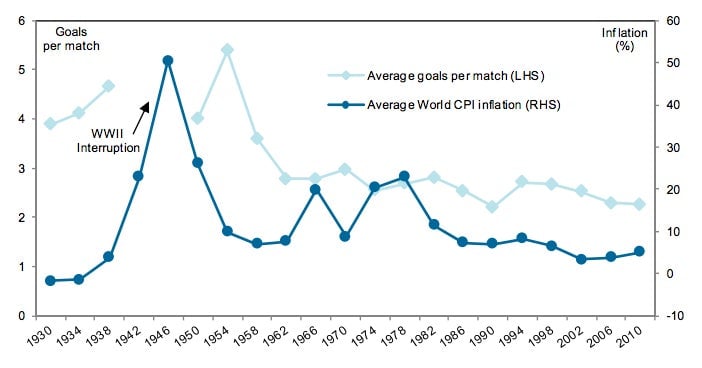
“Azzuri” success and Italian asset prices
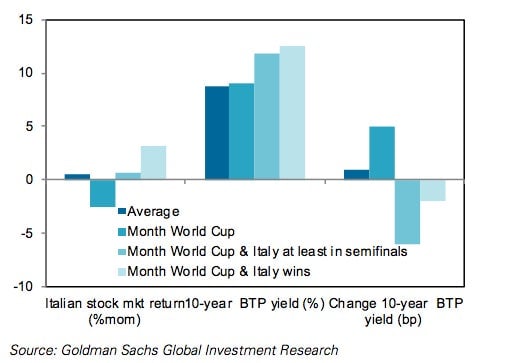
Japan success and Nikkei 225 declines
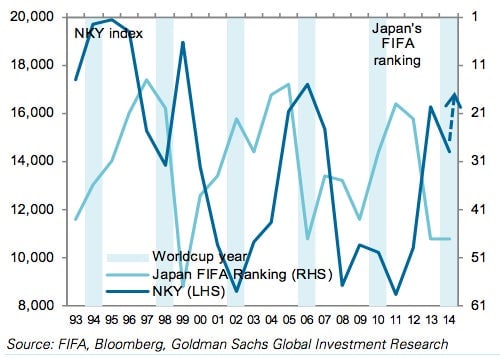
Dutch house prices and team performance (relative to neighbor Germany)
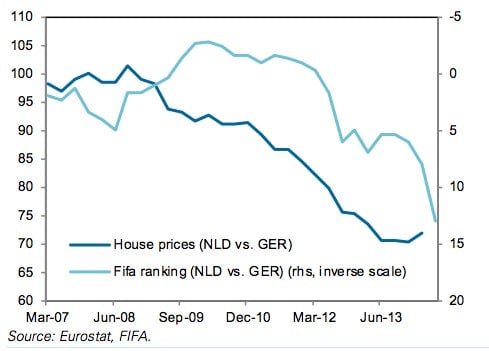
Poor England performances and UK economic growth
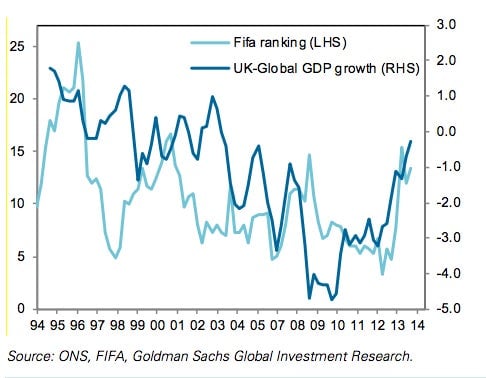
Japan’s aging population problem extends to its soccer team
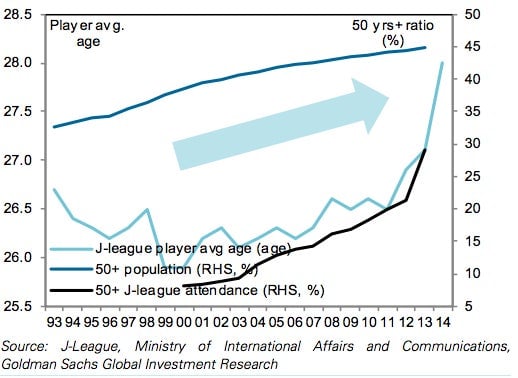
For the record, Goldman’s model tips host nation Brazil as favorites
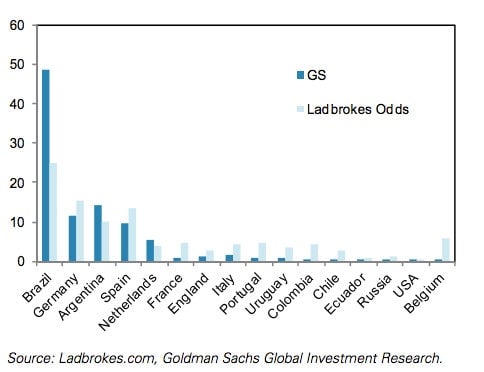
And the odds suggest Argentina’s Leo Messi will be top scorer
